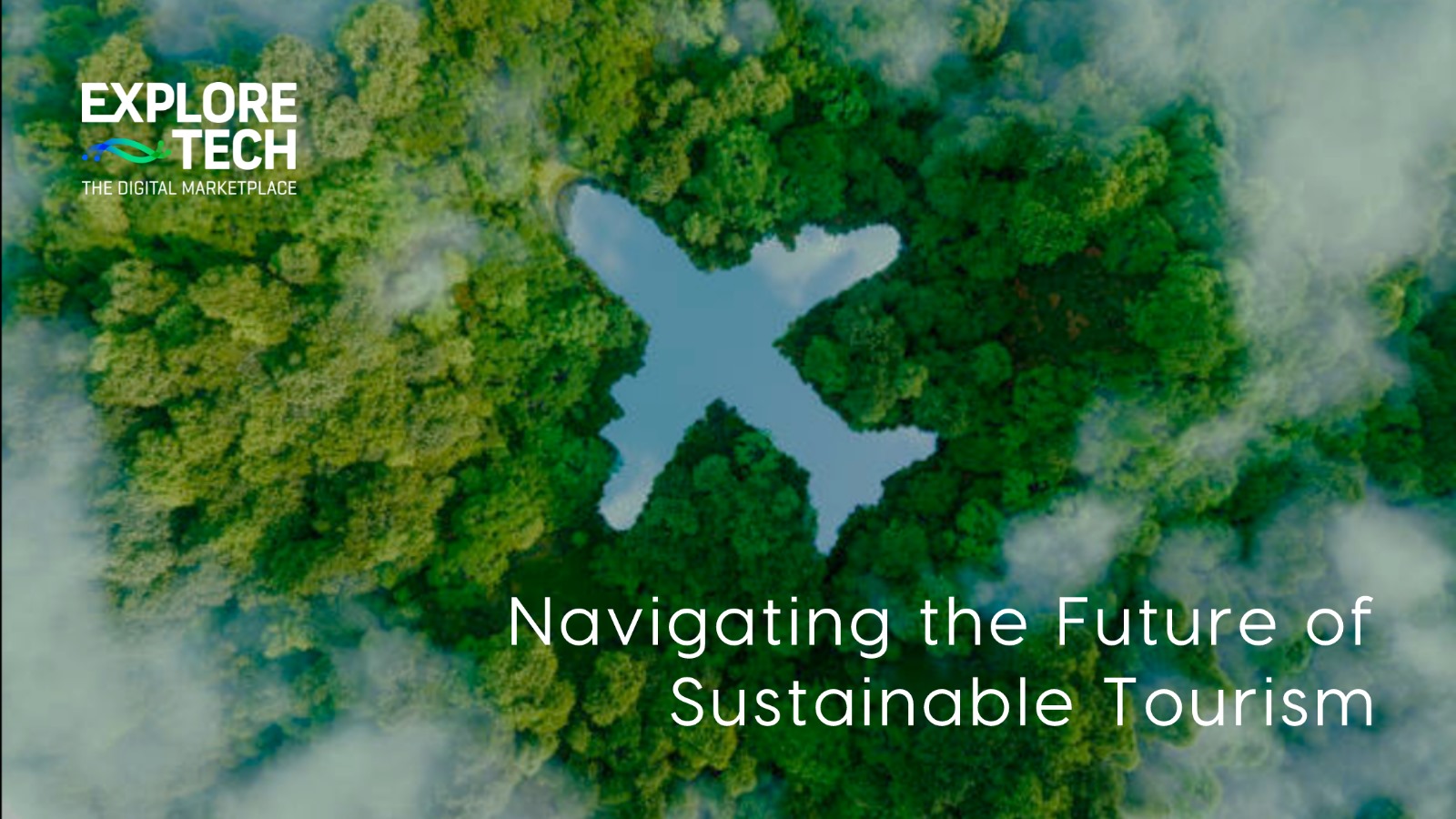
Sustainable tourism is more than just a buzzword in the hospitality and travel industry. It represents a fundamental shift towards responsible and environmentally conscious practices that aim to minimize negative impacts on local communities and the planet. In this blog article, we'll delve into the concept of sustainability in travel and tourism, exploring its importance and, more specifically, the pivotal role that technology plays in driving this transformation.
The travel industry's rapid growth in recent decades has led to increased pressure on natural resources, cultural heritage, and local communities. Sustainable tourism is crucial for mitigating these impacts and ensuring that destinations remain viable for future generations. Embracing sustainability not only aligns with the global push towards responsible living but also serves as a competitive advantage for businesses. Travelers are increasingly seeking eco-friendly and socially responsible options, and companies that prioritize sustainability are better positioned to attract and retain customers.
Defining Sustainability in Hospitality and Tourism
Sustainability in hospitality and tourism involves minimizing the negative impacts of travel activities on the environment, local communities, and economies while maximizing the positive contributions. It encompasses various dimensions, including environmental conservation, social responsibility, and economic development. For hotels, airlines, and other travel-related businesses, sustainability means adopting practices that reduce carbon footprints, conserve resources, and support the well-being of local communities.
Sustainability in Travel and Tourism: A Holistic Approach
Sustainable tourism involves a comprehensive approach that considers the entire travel ecosystem. From reducing carbon footprints to supporting local economies, sustainable practices aim to create a positive impact on destinations, preserving their natural and cultural assets for future generations. This approach not only benefits the environment but also enhances the overall travel experience.
The Importance of Sustainability for the Travel Industry
Preserving Natural Resources
Sustainable practices help in preserving the pristine beauty of natural landscapes, ensuring that destinations remain attractive to visitors while protecting ecosystems.
Community Empowerment
Sustainable tourism supports local communities by providing economic opportunities, fostering cultural exchange, and promoting social well-being.
Long-Term Viability
Prioritizing sustainability ensures the long-term viability of the travel industry by mitigating environmental degradation and minimizing negative social impacts.
The Role of Technology in Sustainable Tourism
Smart Destination Management
Technology enables the development of smart destination management systems that monitor tourist flows, optimize resource usage, and enhance overall sustainability.
Digitalization for Efficiency
Digital platforms and tools streamline operations, reducing paper usage, energy consumption, and waste, contributing to a more sustainable operational model.
Innovative Transportation Solutions
From electric and hybrid vehicles to advanced reservation systems, technology plays a crucial role in optimizing transportation, reducing emissions, and improving overall efficiency in the travel sector.
Enhanced Visitor Education
Technology facilitates the dissemination of information about sustainable practices to tourists, encouraging responsible behavior and fostering a greater understanding of the local culture and environment.
Navigating Towards a Sustainable Future
As the travel industry continues to grow, the integration of sustainable practices becomes imperative. Technology serves as a powerful catalyst for change, offering innovative solutions that enhance operational efficiency and contribute significantly to the overall sustainability of tourism. By embracing technology and adopting eco-friendly practices, the travel industry can pave the way for a more responsible and resilient future, where the beauty of destinations is preserved, and communities thrive in harmony with nature.
Catalyzing Sustainable Tourism: ROC ME Commercial Strategy Conference Precedes COP28
The ROC ME Commercial Strategy Conference, held in Dubai on the 28th and 29th of November, took center stage in championing the cause of sustainable tourism and hospitality. This gathering of industry leaders explored the transformative potential of sustainability and set the stage for crucial discussions that would later resonate at the 28th Conference of the Parties (COP28) on climate change.
Conference Anticipation and Alignment with COP28 Objectives
The timing of the ROC ME Commercial Strategy Conference ahead of COP28 lent an air of anticipation and urgency to discussions surrounding sustainable practices in tourism. The conference provided a precursor to the global dialogue on climate change, influencing the trajectory of conversations by emphasizing the immediate need for sustainable solutions in the travel and hospitality sectors.
Conference Highlights: Paving the Way for COP28
Industry professionals and delegates at the ROC ME Conference engaged in in-depth discussions, sharing insights and strategies that would later echo in the global arena at COP28. Notably, the conference shed light on the industry's commitment to embracing sustainability as a core business strategy, aligning with the imminent global discussions on climate change and environmental responsibility.
Sustainable Tourism Takes Center Stage at COP28
As COP28 unfolded, the discussions at the ROC ME Conference reverberated in the global discourse on climate change. The COP28 agenda underscored the interconnectedness of various sectors in addressing environmental challenges, with sustainable tourism emerging as a critical component. The insights and initiatives highlighted at the ROC ME Conference played a foundational role in shaping the narrative around the travel industry's commitment to sustainability during COP28.
Technology as the Bridge Between Intent and Action
A common thread in both events was the pivotal role of technology in bridging the gap between sustainable aspirations and practical implementation. The ROC ME Conference laid the groundwork by showcasing technological advancements that empower the travel industry to adopt sustainable practices. From transparent supply chains enabled by blockchain to data analytics guiding decision-making, technology emerged as a catalyst for sustainable transform

ExploreTECH Content Team
admin


